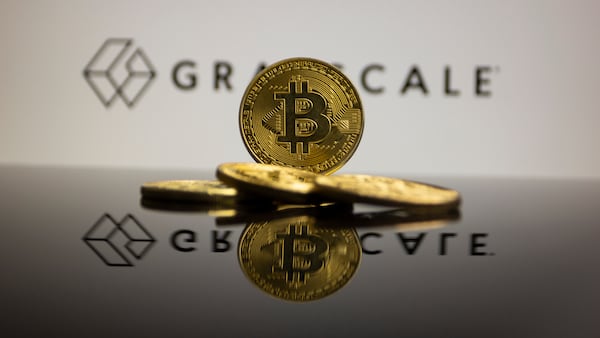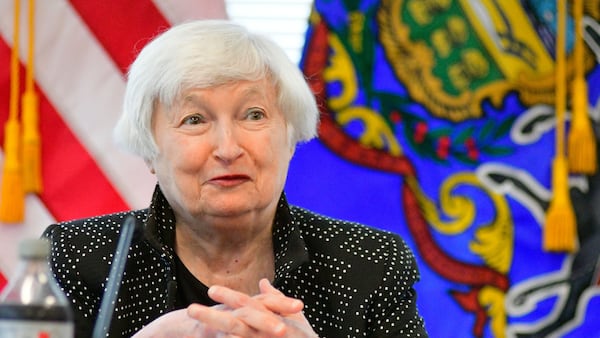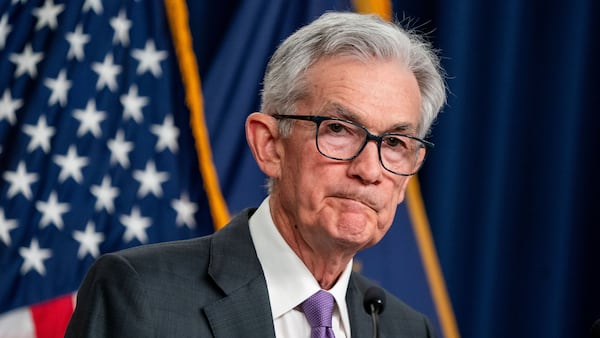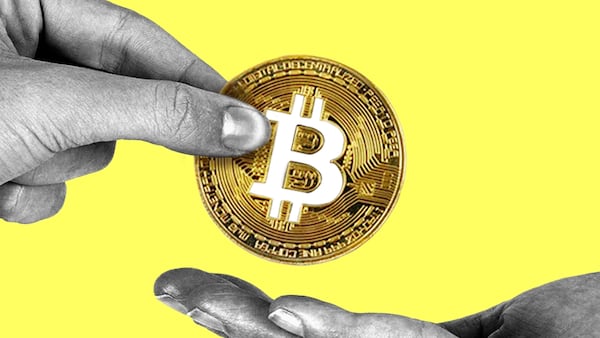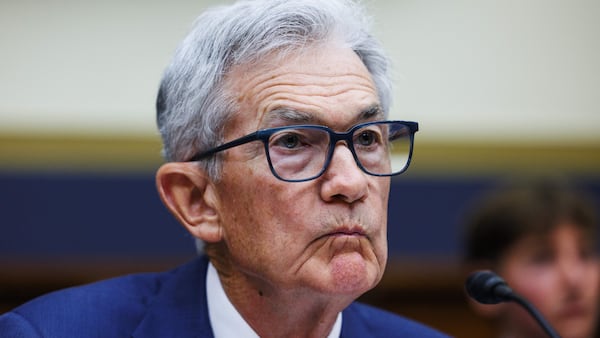Wolfgang Münchau is a columnist for DL News. He is co-founder and director of Eurointelligence, and writes a column on European affairs for UnHerd. Opinions are his own.
The gold price has reached an all-time high of $2,500 per ounce. In inflation-adjusted terms, we are not yet close to where gold traded in January 1980. But we are getting there.
The gold price is rising because investors are preparing for falling US interest rates, a weaker dollar, and a crash in tech stocks. So why is Bitcoin not partaking in this rally?
The Bitcoin dollar price is of course much higher than it was at the end of 2022. And yet, there is a difference between the steady rise in the price of gold since 2000, and the more sudden spikes in the price of Bitcoin.
The difference is that gold is an asset investors turn to if they fear financial instability. Bitcoin is the ultimate risk-on type investment. It has characteristics of a tech asset.
Not a debasement hedge
As I argued in a previous column, Bitcoin is not a debasement hedge. It is also not a tech-bubble hedge either.
Several top investors like Warren Buffet and George Soros have recently declared that they have exited certain segments of the high-tech sector.
We heard a warning from the hedge fund Elliott that the artificial intelligence boom was a hype and that the price of Nvidia in particular was, as they called it, in bubble land. I broadly agree with this judgement.
The reason I think is that the revolution will not arrest a secular fall in productivity growth across the west.
The US managed to buck that trend towards lower productivity growth, but if you exclude the tech sector, the US is not so different from Canada or Europe.
The tech sector’s productivity miracle is related to a stock market that provided a stream of cheap capital to the sector. When that flow of money ends, I would expect the productivity gap between the US and Europe to close.
If productivity growth is low, why should company profits growth stay high? The current valuations assume that they do. In the long-run, you would expect the two to be the same.
There are various ways to look at gross domestic product. One way is to see it as the sum of all profits and all wages.
For most of this century, profit growth outstripped GDP growth, and thereby wage growth, because politics and demography favoured corporate profits.
This is changing now. Until the last century, the so-called price to earnings ratio for the S&P 500 fluctuated between just below 10 and 20. That was a period of relatively high productivity growth.
The ratio is now at 26. For the Nasdaq it is 40. If long-term productivity growth falls, I struggle to see how these valuations can persist.
High value tech stocks
The very high valuations of technology stocks and crypto assets is based on extremely optimistic assumptions about future income growth.
Crypto carries with it the promise of financial innovation, but it may be a decade or two until this becomes macroeconomically relevant.
AI will no doubt influence our lives. But both its promises, and scare stories, are vastly exaggerated.
I find ChatGPT useful for technical tasks, especially for programming, but totally useless to help me in my journalism.
Remember in 2017 when everybody predicted we would have self-driving cars by now? We are still many years away from that utopia.
If we are lucky, we can get cars to drive by themselves on a motorway in 10 years. Motorways are by an order of magnitude easier to understand than cities.
Bitcoin boom?
So what will happen to Bitcoin if the market crashes? Bitcoin is, of course, as inflation-proof as gold, if not more so.
There are supply risks for gold. Central banks may flood the markets with their gold reserves. Or we might find new gold. We are not going to find any more Bitcoin. There can be no supply shock.
Unfortunately, that does not settle the question. Right now, Bitcoin’s fortunes are intertwined with that of the tech industry. Many investors treat crypto as part of their tech portfolio.
Crypto assets, and especially Bitcoin, have over the years acquired characteristics of classic investments through exchanges, stablecoins, and spot exchange-traded funds.
Gold sits at the exact opposite end of the portfolio — the safe-haven, boring compartment.
People generally do not invest in gold to make lots of money. The gold bugs behave more like a cult. I always wondered why so many of the older male gold-fans wear bowties. It is a strange crowd.
The cryptoverse also has its fair share of cranks, but it could not be more different than the temple of gold.
This applies also to the way the two will react to a bursting bubble. What happens in that scenario is that liquidity will drain from the system. Traders will scramble to meet margin calls.
The financial world is not as fragile as it was in 2008. But a tech crash of the magnitude I expect would I think be a source of financial instability.
So when the market crashes, I expect Bitcoin to crash along with it. Bitcoin and other crypto assets will eventually recover, so will some, but not all of the currently high-flying tech stocks.
The reason why I am optimistic in the long-run is that crypto -assets share one important characteristic with gold: their scarcity makes them a safe long-run investment.
That is true even if the majority of investors don’t treat Bitcoin in that way right now.
A few years ago, I did not accept the argument that scarcity has intrinsic value. I felt it needed to be associated with something else, like an industrial purpose, an aesthetic value, or in the case of gold, a time-tested consensus that it is valuable in its own right.
I have changed my mind on this point. In a world in which central banks have recklessly expanded their balance sheets and when governments have turned their currencies into geopolitical weapons, there is value in guaranteed scarcity in its own right.
But that’s the long run. If the bubble were to burst within the next year or two, Bitcoin will, I believe, go down with it. And gold won’t.



